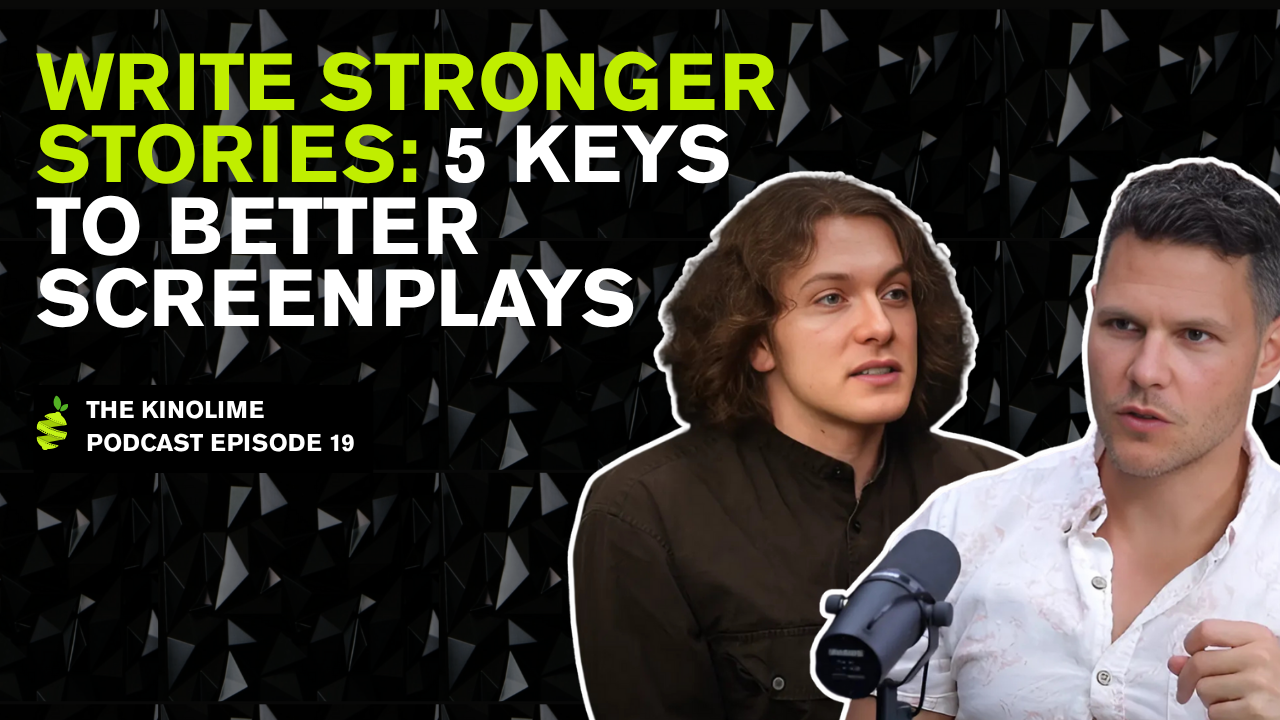Master the Fundamentals of Screenwriting and Building Stories that Stick [Podcast]
For years, writers have been told the spec market is dead that studios aren’t buying original scripts anymore. But the numbers tell a different story. With spec sales ticking upward again, the landscape may finally be shifting in favor of fresh voices and bold ideas.
In this episode of the KinoLime Podcast, hosts John and Danny break down what this resurgence means for aspiring screenwriters and share five crucial tips for making your spec stand out.
Full Transcript: Kinolime Podcast Episode 19: Master the Fundamentals of Screenwriting and Building Stories that Stick
Participants:
John Schramm - Head of Development, Kinolime
Danny Murray - CE, Kinolime
Spec Market Is Heating Up
John: As of mid-August, there were eight spec sales compared to about four the year before. That’s a huge jump. For years, all I heard was: “The spec market’s dead. No one’s buying specs.” You hear it so often, it gets discouraging.
But now, with movies like Weapons and Sinners, we’re seeing an uptick. That’s good news. So today, we’re gonna give you five tips to help get your script ready for the spec market.
Tip 1 - Premise Is King (John)
John: When I read any spec script, I’m all about the premise. Premise is king or queen. It’s the ground everything else stands on.
I want smart, inventive hooks. I want to instantly know what I’m investing two hours of my life into. They’re not buying your script for the rewrite, they’re buying it for the idea.
Danny: Yeah, and to add to that, when I’m talking to people at studios or other production companies, they’ll often say, “Hey, can you send me a list of loglines?” They just want that one-line pitch. If your logline doesn’t pop, doesn’t feel original or elevated, they’ll never even ask for the script.
John: Exactly. If your premise is confusing, or you can’t boil it down cleanly, you’re already in trouble. Premise is king.
Tip 2 - Style in Descriptions (Danny)
Danny: As someone who reads, I don’t know, 300 screenplays a month, here’s what kills a script for me: descriptions with no personality.
Everyone knows: “Keep descriptions short, four lines max.” But that’s not enough. Those short blocks are where your voice should shine.
In one of our competitions, I read a character description that went:
“This guy looks like a chemo patient who got kicked down a flight of stairs.”
In one line, I understood the writer’s tone, their style, the pace of the story. It felt alive.
John: And on the flip side, what drags me down are giant walls of description. Six lines that could be two. Don’t make me feel like I’m slogging through it. Keep it tight, keep some white space on the page. But like Danny said keep it stylish, too.
Tip 3 - The Burning Question (John)
John: Every great screenplay should have a central narrative question. Something that makes me want to reach the end.
It doesn’t have to be a big mystery. It can be simple:
Will the girl get the guy?
Will the father forgive his son?
That’s the engine. That’s why readers flip pages.
When I test a script, I’ll stop on page 67. I ask myself: Do I still care about the ending? Do I need to know the answer? Most of the time, if the answer’s no, the screenplay doesn’t hold weight.
Tip 4 - Subtext in Dialogue (Danny)
Danny: Dialogue without subtext kills a scene.
I’ve read about 15 scripts today alone, and in almost every one, the dialogue was on the nose. Characters saying exactly what they mean. Even if it serves the plot, it doesn’t reveal character.
John: Right. If I’m not learning something new about a character, what they’re afraid to say, what they’re hiding-then you’re wasting the scene.
Danny: A great exercise: Write the exposition first. Then rewrite it in a way that’s character-driven. Instead of, “Will you go to the dance with me?” maybe try, “Got plans Saturday night?”
Say it without saying it. Layer meaning underneath. That’s how you make dialogue live.
Tip 5 - A Worthy Antagonist (John)
John: For me, it always comes back to the antagonist.
I once read a spec called The Infiltrator, and the villain was one of the best I’ve ever seen on the page. I couldn’t put it down.
Your antagonist doesn’t just need to be “bad.” They need to stay a step ahead, keep your protagonist at a disadvantage. That tension makes me keep reading.
Danny: Yeah, if your hero isn’t climbing a mountain, there’s no story. Make your antagonist clever, resourceful, always just a little out of reach.
Wrap-Up
John: So, to recap:
Premise is king.
Style your descriptions.
Pose a burning question.
Infuse dialogue with subtext.
Craft a formidable antagonist.
Danny: And once you’ve applied those, submit your script to KinoLime.com. We’ll read it, maybe even option it.
John: Exactly. Keep writing.

